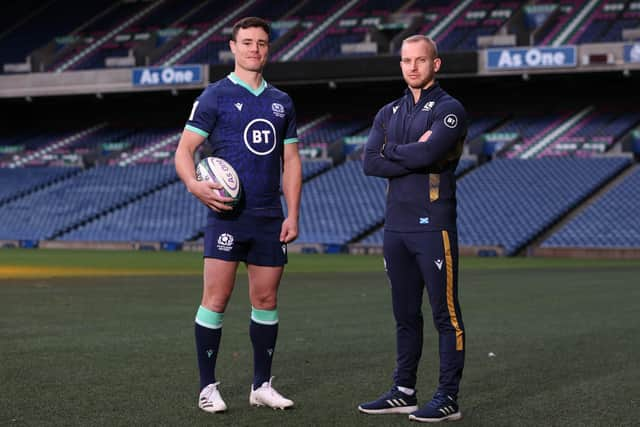HSBC World Sevens: Future of Scotland Sevens side at risk after Team GB decision - Allan Massie
This is because we compete in the Olympics as Great Britain, not Scotland, England and Wales and next year is an Olympic one. Actually of course we compete there as Great Britain and Northern Ireland, but of course in rugby Northern Ireland has no distinct identity, but is a component part of the Irish Rugby Union. So any Northern Irish Sevens star who features in the Paris Olympics will do so as a member of the Ireland team.
Meanwhile, the SRU assures us that the Scotland Sevens team, though no longer playing in the HSBC World Series, will continue to compete in the Commonwealth Games (as of course they are doing this weekend) and in “other competitions” – whatever these may be.
Advertisement
Hide AdAdvertisement
Hide AdThe SRU’s Press Release is – of course, you may say – characteristically bland. There has, apparently, been pressure from World Rugby that Team GB “should become part of the Sevens landscape to align qualification through the HSBC for the Olympics qualification”.
This might, one supposes, have been done differently. Perhaps the top performer of the three teams – Scotland, England and Wales – in the HSBS World Sevens series might have been nominated as Team GB for the Olympics. But if the SRU or indeed the Welsh Rugby Union argued for this, it lost the argument. It seems probable that Team GB in the Olympics will have more English than Scottish or Welsh representatives. Certainly fewer Scots will feature in the HSBC World Sevens, and whatever tournaments the Scotland Sevens team may play in will belong at best to what one may call the second division of international Sevens rugby.
That being so, one wonders for how long the SRU would remain committed to retaining a professional Sevens team. What would be the point if it was no longer competing in a major tournament, except, every four years in the Commonwealth Games. Might it not be as well to select what you might call an “ad hoc” Sevens side from our two professional clubs, or indeed, from the six semi-pro ones, or even – and why not? – from the amateur game for the once in four years Commonwealth Games?
It will be sad not to have Scotland in the HSBC World Series, but the idea mooted when the professional Sevens squad was formed that experience in the World Sevens tournament would help develop stars of the 15-a-side game has scarcely proved to be the case. Given that, before the pandemic, players in the Sevens squad travelled the world for months and were very rarely available for Glasgow or Edinburgh, let alone being selected by Scotland, it was clear that there wasn’t much crossover between the short game and the long one. For the most part players who established themselves on the international Sevens circuit played very little 15 a-side rugby. Mark Bennett played for the cobbled-together GB Sevens team in the 2016 London Olympics, but, as I remember, he had played very little Sevens previous – and none since.


The rare exception is Lee Jones, who is now taking part in his fourth Commonwealth Games, a remarkable achievement in view of how frequently his career has been interrupted by injuries. He is one of the very few to have moved successfully between the long and short forms of the Game. He had already played in the Games in Delhi in 2010 when he was still playing amateur rugby for his home club Selkirk. Joining Edinburgh he was fist capped against England in 2012, and played four matches that tournament, scoring a try against France before injury cost him a place on that summer’s tour of Australasia. He then fell out of favour at Edinburgh, the coach Alan Solomons telling him bluntly he preferred big wingers – Lee stands only 5ft 9. The Sevens team welcomed him back and he scored tries prolifically. Gregor Townsend then signed him for Glasgow and would later cap him for Scotland again. In a career disrupted by injuries , he would finish with ten full Scotland caps, before returning to Sevens for this fourth Commonwealth Games. As a schoolboy he played scrum-half and has sometimes filled that role for the Sevens team, but it is as a try-scoring winger that I picture him. These days in Birmingham may be his last fling on the field. How many players in the future will match his record of representing Scotland at Fifteens and Sevens? It’ll be a rare bird who does so.
Comments
Want to join the conversation? Please or to comment on this article.